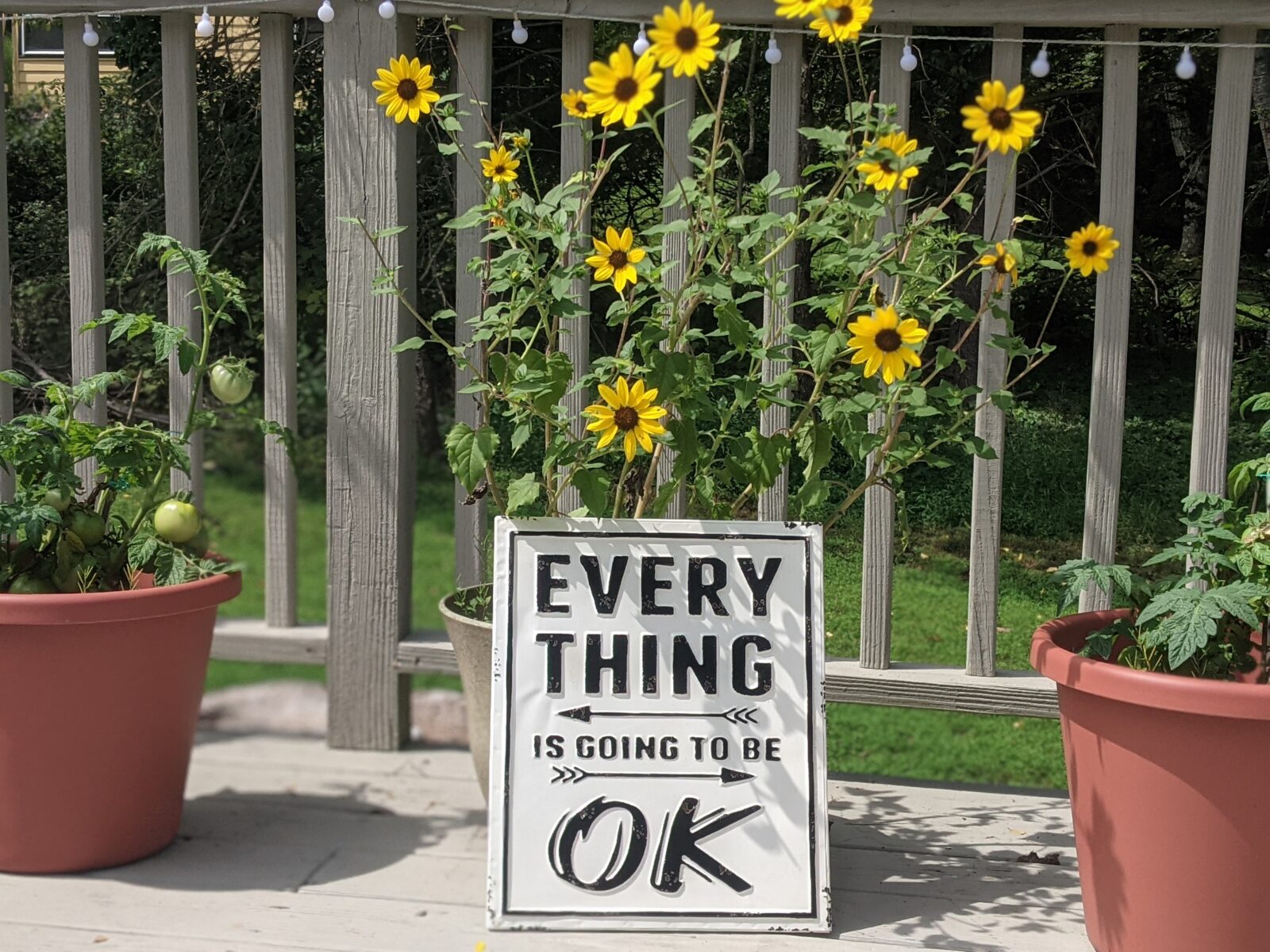Practicing positivity can be an effective coping strategy for mental wellness. Studies show a strong link between positive thinking and health benefits like the reduction of anxiety, lower rates of depression, lower levels of distress, and better psychological and physical well-being.1
How does practicing positivity impact mental wellness?
One theory is that having a positive outlook enables people to cope better with stressful situations, which in turn can reduce the harmful health effects of stress on your body and your mind.2
What is one method of practicing positive thinking?
By identifying stressful or negative thoughts and actively trying to redirect these thoughts toward a more positive outcome people can develop better-coping skills that can be utilized during times of hardship.
This method involves realistically looking at all aspects of a problem—positive, negative, and neutral—and developing a more balanced approach. 3,4
Positive thinking is a coping strategy, not a cure.
It’s important to recognize that positivity is not going to manifest a cure for chronic illness, and we can’t just think our way to good health. If we could, we would have done it already. However, having a positive attitude has, in fact, been proven to be a powerful tool for stress management and can improve overall health, immune function, and quality of life.5
Can positive thinking be a form of denial?
Relying on positive thinking to avoid dealing with difficult things can be detrimental to one’s health. By downplaying the possible consequences of chronic illness and not facing the reality of its potential impact, you can inadvertently put yourself at risk by not taking the actions needed to maintain mental or physical wellness.
When can denial be a good thing?
Short-term denial is a coping mechanism that can give you the time to adjust to distressing situations but staying in denial can interfere with treatment or the ability to face challenges.6
We can’t be positive all the time! Sometimes life really does suck.
When dealing with chronic illness and symptoms or circumstances unlikely to change, getting peppered with positive comments is not helpful and it can feel very dismissive and condescending. It’s natural to feel sad or angry when things aren’t going well. Even when people are well-intentioned, unsolicited positive sentiments can just make us feel misunderstood and more alone.
I have it worse than you so keep your positivity to yourself!
Living with chronic illness can be really hard and sometimes we just don’t have the energy or the patience to hear what others are dealing with or to appreciate another point of view.
Even within the patient community, people express frustration with others going through similar experiences but who comment positively. Many feel these comments are unrealistic and that they send a bad message.
Just as the course of disease is different for everyone, so are our coping strategies and the way we will react to adversity.
People should be able to speak from the heart and share what’s true for them without being labeled as being too positive or too negative. It’s hard enough to balance all the emotions that can come from living with chronic illness without having to deal with judgment about how you express yourself.
Perspective is everything.
Is there a downside to being too positive? Absolutely, but the same can be said of being too negative. Negativity can be insidious and inspire anxiety, fear, and depression as well as diminished life satisfaction.
Positivity can be used as a tool to manage stress and have a better quality of life. Research supports the theory that mindset is a determining factor in a person’s ability to adapt to and deal with hard things.
Do you act or react?
Not everyone prescribes to “Change your thoughts change your life” philosophy but we all have the ability to choose how we act or react to external stimuli. My automatic response to bad things is to look for something that I can work with to improve my situation. My tendency is to look at the big picture and move forward in that direction working with what I’ve got.
I’ve always been a silver-linings kind of girl.
I believe optimism is the key to overcoming adversity and practicing positivity as a coping method can help manage emotions while trying to navigate living with chronic illness. I’ve learned to look for the bright side even when life seems pretty grim. I don’t think that’s denial, I think that’s resilience.
If you found this article helpful, please Like and Share.
Click here to subscribe for new monthly posts, exclusive content, and healthy habit hacks for living well with Multiple Sclerosis. Please check your inbox and the spam folder to confirm your subscription.
1https://www.mayoclinic.org/healthy-lifestyle/stress-management/in-depth/positive-thinking/art-20043950 2https://www.mayoclinic.org/healthy-lifestyle/stress-management/in-depth/positive-thinking/art-20043950 3https://www.ncbi.nlm.nih.gov/pmc/articles/PMC1071234/ 4 Greenberger D, Padesky C. Mind Over Mood. New York City: Guilford Press; 1995. 5 https://pubmed.ncbi.nlm.nih.gov/15250815/ 6 https://www.mayoclinic.org/healthy-lifestyle/adult-health/in-depth/denial/art-20047926
